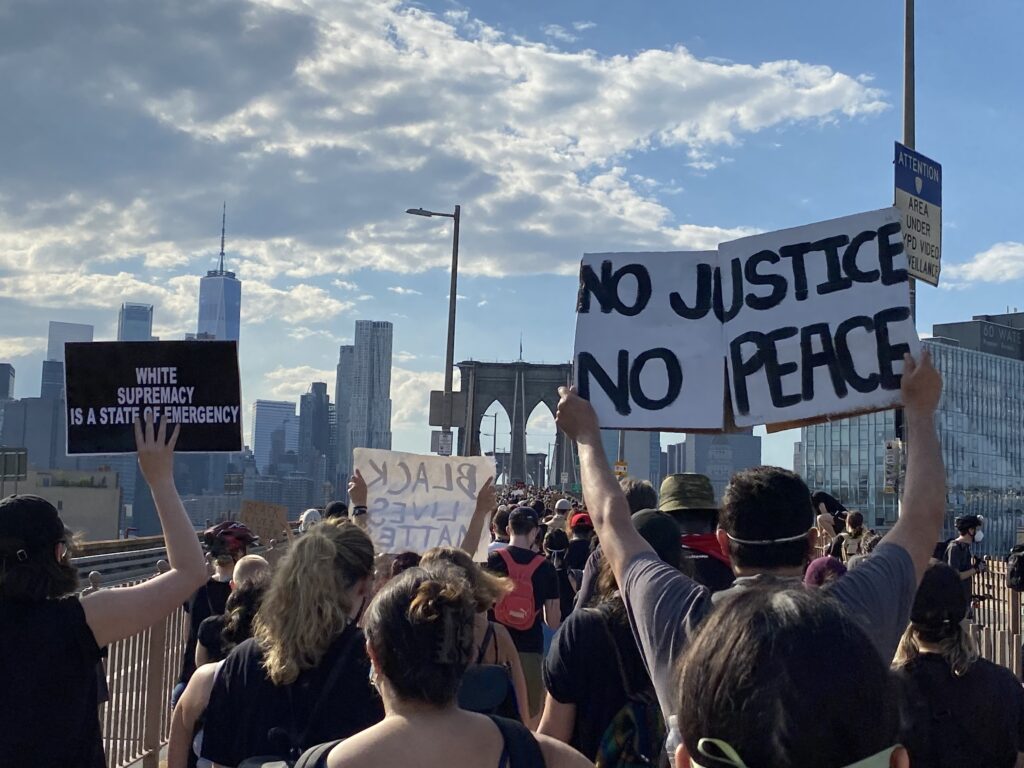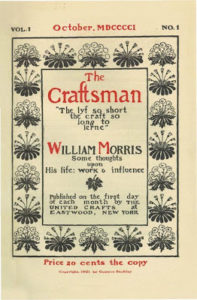
Brooklyn, New York
|
434 wires unlock the land |
limbs sling across the chasm |
By AKWE AMOSU

New York City
After Kenosha, Wisconsin, 26 August 2020
1. Erasure
I went to the for water,
although I had no thirst, again
unable to find Not sleeping,
roaming restless, hunting
at 2am for on my phone,
no rabbit hole too deep, however
dull, aching tired as though
I had been
Only three days into this,
asked how my was
going, I launched into a tense
that the question even
deserved and saw how hard,
again, I was trying not to the
plain fact that right in front of us,
again, the cop had emptied
his into a human,
now yet shackled
to his hospital bed. That again, a
young had taken down a human
with a military grade yet
away from the scene unhindered.
And that, again, we were being asked
to choke off thoughts, stifle
any sound, stave and belt
the chest to our agitation,
keep breathing because, again,
we
For our first date, Alex bikes all the way to Brooklyn Heights from the Upper West Side. Before we met, he told me how excited he was, how nervous. “I’ve never been on an online date before,” he confessed. “I don’t use apps.”
I made Negronis in jam jars and put them, with an ice pack, in my tote. I arrive terrified at the promenade. When I see the skyline, framed by haze and blue river water, I cry out. It’s the end of May, and for almost three months, I’ve been alone in my apartment. My loneliness propels me to risk contamination. I don’t tell friends or family. But they live with partners, kids. They have no right to judge.
Alex lives alone, too. We make jokes that aren’t jokes about going crazy; I even talked about crying. Hahaha really?, he wrote, then asked me out.
For two minutes, I let myself lean against a brick building and hyperventilate. He told me which bench to find him on, but I would have known him anyway when I see very long legs sticking out and a moppy brown head bent over a book.
By OLIVE AMDUR
 “Places remember what people forget.”
“Places remember what people forget.”
– Richard Powers
Instead of speaking, we eat peanuts in the Holland Tunnel: the unshelled, lightly roasted kind from the bulk section of our grocery store. With one hand on the steering wheel, my father takes handfuls from the top, since all the salt falls to the bottom, and my mother digs for those. Outside, the tunnel tiles blur as our Subaru speeds beneath the river and all the buried foundations of New York.
By MATILDE CAMPILHO
Translated by HUGO DOS SANTOS
for José
On the night Billy Ray was born
(New York, 28th and 7th)
not one soul contemplated the geraniums
There was, however, the sound of the world falling
like multiple stalactites
in the area surrounding the hospital

Broad Channel, Queens, New York
I grew up on an island called Broad Channel in southern Queens that was at or below sea level, depending on the tide. My dad’s house was one that was high and dry. We lived on Cross Bay Boulevard, the main street which ran down the spine of our croissant-shaped island. The boulevard only flooded during hurricanes or nor’easters that came on the full or the new moon. In some of the lower streets in the town, kids would show up late to school because they had to wait for the tide to go out before they could step out of their homes. Often, the high tide water flooded their blocks.
Please welcome poet FRANCES RICHEY to our pages.
Contents:
—The Times Square Hotel
—After the Diagnosis
Frances Richey is the author of two poetry collections: The Warrior (Viking Penguin 2008), The Burning Point (White Pine Press 2004), and the chapbook, Voices of the Guard (Clackamas Community College 2010). She teaches an on-going poetry writing class at Himan Brown Senior Program at the 92nd Street Y in NYC, and she is the poetry editor for upstreet Literary Magazine. She was poetry editor for Bellevue Literary Review from 2004-2008. Her work has appeared in or is forthcoming from: The New York Times, The New York Times Magazine, O, The Oprah Magazine, Plume, Gulf Coast, Salmagundi, Salamander, Blackbird, River Styx, and Woman’s Day, and her poems have been featured on NPR, PBS NewsHour and Verse Daily. Most recently she was a finalist for The National Poetry Series for her manuscript, “On The Way Here.” She lives in New York City.

“Nuns fret not at their convent’s narrow room,” I intoned solemnly when things were normal back in the BC days (Before COVID). “In truth the prison, unto which we doom/Ourselves; no prison is.” I winked at my “Forms in Poetry” class to let them know I felt their pain. It turned out to be our last face-to-face meeting for the semester. We were studying the sonnet and I’ve always used William Wordsworth’s love poem to strict forms as a pep talk for beginning prosodists. “And hence for me,/In sundry moods, ‘twas pastime to be bound/Within the Sonnet’s scanty plot of ground.”
Easy for you to say, I tell my three-weeks-ago self. I had no idea what was about to hit us. I’ll bet my shrinking TIAA stash that you didn’t either.